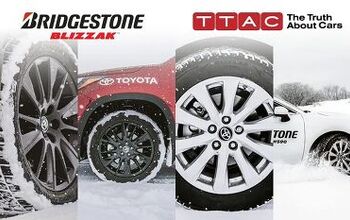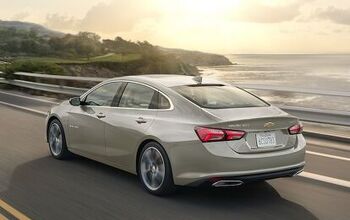Time to Go Global? GM Australia's Holden Special Vehicles Building Right-hand-drive Chevrolet Camaros for Sale in 2018
In response to the huge global success achieved by the sixth-generation Ford Mustang, General Motors’ Australian Holden branch is developing right-hand-drive Chevrolet Camaros for sale in 2018.
According to Australia’s News, the beleaguered Holden brand will benefit from the launch of a market-specific Camaro next year thanks to conversion work done by Holden Special Vehicles.
General Motors is no doubt privy to news that the Ford Mustang became a global hit when the sixth iteration launched with independent rear suspension and right-hand-drive availability. The Mustang arrived in the United Kingdom in late 2015, for instance, and quickly outsold all other sporting coupes, earning the bulk of its sales from V8 versions. And in Australia, where Ford originally anticipated 1,000 annual Mustang sales, the Blue Oval is running at a roughly 10,000-unit annual pace.
Selling far fewer Camaros in its home market than it used to, Chevrolet could certainly use a global boost for its high-performance coupe. But the sales boost may be modest, as Australia’s Camaro is destined to be far more costly than the Mustang.
The cost of total Camaro renovation will likely drive the Camaro SS’s price up to AUD $80,000-$90,000, about $30,000 more than the basic Mustang and $20,000 more than the Mustang GT. Price is only one factor that will result in few Camaro sales down under. HSV will likely only be able to build 1,000 of the cars annually, although Holden’s employee count is likely to tick up by 150 to 200 workers.
Until Holden readies the first right-hand-drive Camaros for sale in Australia, the company will suffer a six-month gap without a V8-engined performance car. Holden has typically been able to sell 3,000 V8-engined vehicles annually.
Back on this side of the Pacific, Camaro sales are off 2016’s pace by 4 percent through the first two-thirds of 2017, setting the stage for the lowest-volume year of U.S. Camaro sales since the nameplate was brought back from the grave in 2009. With 46,297 sales so far this year, the Camaro trails the Mustang by 10,000 units and the Dodge Challenger by 1,200.
[Images: General Motors, Ford]
Timothy Cain is a contributing analyst at The Truth About Cars and Autofocus.ca and the founder and former editor of GoodCarBadCar.net. Follow on Twitter @timcaincars and Instagram.
More by Timothy Cain
Latest Car Reviews
Read moreLatest Product Reviews
Read moreRecent Comments
- Varezhka I have still yet to see a Malibu on the road that didn't have a rental sticker. So yeah, GM probably lost money on every one they sold but kept it to boost their CAFE numbers.I'm personally happy that I no longer have to dread being "upgraded" to a Maxima or a Malibu anymore. And thankfully Altima is also on its way out.
- Tassos Under incompetent, affirmative action hire Mary Barra, GM has been shooting itself in the foot on a daily basis.Whether the Malibu cancellation has been one of these shootings is NOT obvious at all.GM should be run as a PROFITABLE BUSINESS and NOT as an outfit that satisfies everybody and his mother in law's pet preferences.IF the Malibu was UNPROFITABLE, it SHOULD be canceled.More generally, if its SEGMENT is Unprofitable, and HALF the makers cancel their midsize sedans, not only will it lead to the SURVIVAL OF THE FITTEST ones, but the survivors will obviously be more profitable if the LOSERS were kept being produced and the SMALL PIE of midsize sedans would yield slim pickings for every participant.SO NO, I APPROVE of the demise of the unprofitable Malibu, and hope Nissan does the same to the Altima, Hyundai with the SOnata, Mazda with the Mazda 6, and as many others as it takes to make the REMAINING players, like the Excellent, sporty Accord and the Bulletproof Reliable, cheap to maintain CAMRY, more profitable and affordable.
- GregLocock Car companies can only really sell cars that people who are new car buyers will pay a profitable price for. As it turns out fewer and fewer new car buyers want sedans. Large sedans can be nice to drive, certainly, but the number of new car buyers (the only ones that matter in this discussion) are prepared to sacrifice steering and handling for more obvious things like passenger and cargo space, or even some attempt at off roading. We know US new car buyers don't really care about handling because they fell for FWD in large cars.
- Slavuta Why is everybody sweating? Like sedans? - go buy one. Better - 2. Let CRV/RAV rust on the dealer lot. I have 3 sedans on the driveway. My neighbor - 2. Neighbors on each of our other side - 8 SUVs.
- Theflyersfan With sedans, especially, I wonder how many of those sales are to rental fleets. With the exception of the Civic and Accord, there are still rows of sedans mixed in with the RAV4s at every airport rental lot. I doubt the breakdown in sales is publicly published, so who knows... GM isn't out of the sedan business - Cadillac exists and I can't believe I'm typing this but they are actually decent - and I think they are making a huge mistake, especially if there's an extended oil price hike (cough...Iran...cough) and people want smaller and hybrids. But if one is only tied to the quarterly shareholder reports and not trends and the big picture, bad decisions like this get made.



































Comments
Join the conversation
Is the skywalker Camaro picture intentional, or is it just coincidence that for the third time this has accidently happened, and just on articles about the land Down Under? (Or is a spy shot of the ultra-secret Flying Chevrolet mule, being tested over a placid and colorful lake?)
This is ultimately a fail. The reason why the Mustang sells is that its a Mustang, and its priced well. The Camaro doesnt have such a following and unless is priced toe to the toe, then... why? Of course the Camaro has all the usual issue the Mustang is just plain better at.